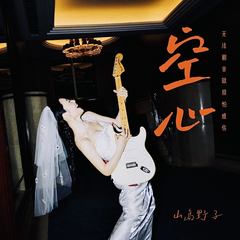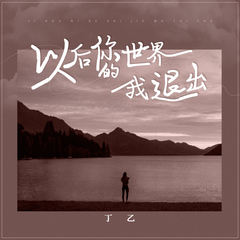Muddy Waters
马迪.沃特斯,1915年出生于密西比的罗林福克,原名麦金利.摩根菲尔德(McKinley Morganfield),他是一位介于查理·帕顿与B.B.金(B.B.King)之间最伟大的布鲁斯音乐家之一。由于他曾经常在泥水中玩耍,因此得到了"Muddy"(泥泞的)这个绰号。马迪·沃特斯13岁学习口琴,17岁学习吉他,1943去芝加哥并成为那里的滑棒吉他大师。1944 年他开始演奏电吉他,晚上在俱乐部演出,白天在造纸厂干活,后来又当过卡车司机。1946年到1954年期间他录制了一批反映极强的热门歌曲,并对节奏布鲁斯(R&B)产生了深远的影响。从1950年起,几乎所有的芝加哥布鲁斯明星都参加过他的乐队。60年代以后,他的音乐变得更加成熟和专业,加进了大量的钢琴、口琴以及架子鼓,使布鲁斯被更多的黑人和白人所接受。1971年推出的《他们叫我马迪·沃特斯》(They Call Me Muddy Waters)为他赢得了第一个格莱美奖(该奖开创于1958年,每年颁发一次,是美国音乐界最高奖项)。他在去世之前一直没有停止过唱片的录制,为布鲁斯音乐留下了大量的宝贵资料。蓝调传奇应该给 Muddy Waters 留有相当多的篇幅,因为他不仅对Blues的发展产生过决定性的影响,同时当我们回顾摇滚乐的发展史时,他也决不应该被遗漏。他是摇滚发展初级阶段的标志性的人物之一!Muddy的嗓音又粗又硬,充满狂野之气,乐队的器乐在各自的旋律线上进行,在段落回归时又汇聚一处,吉他、口琴、钢琴经常做一些灵巧的呼应,鼓和贝司更加沉稳,鼓的力量也有所加大……所有这一切——使Muddy在芝加哥Blues的鼎盛时期为这种风格定下了最权威的定义。(芝加哥蓝调)Muddy Waters具有很全面的素质:一副能够嘶哑咆哮的嗓子,为他的乐队挑选一流乐手的独特眼力,对美国黑人的布鲁斯历史的透彻理解,还有舞台上表现出的激情。另外,Muddy弹奏布鲁斯吉他也很有一套,他的风格不是那种大段的solo和精细的指弹技巧,他更喜欢用一些恰倒好处的、犀利的单音,以及灼热的滑棒lick。by Bill DahlA postwar Chicago blues scene without the magnificent contributions of Muddy Waters is absolutely unimaginable. From the late 40s on, he eloquently defined the citys aggressive, swaggering, Delta-rooted sound with his declamatory vocals and piercing slide guitar attack. When he passed away in 1983, the Windy City would never quite recover.Like many of his contemporaries on the Chicago circuit, Waters was a product of the fertile Mississippi Delta. Born McKinley Morganfield in Rolling Fork, he grew up in nearby Clarksdale on Stovalls Plantation. His idol was the powerful Son House, a Delta patriarch whose flailing slide work and intimidating intensity Waters would emulate in his own fashion.Musicologist Alan Lomax traveled through Stovalls in August of 1941 under the auspices of the Library of Congress, in search of new talent for purposes of field recording. With the discovery of Morganfield, Lomax must have immediately known hed stumbled across someone very special.Setting up his portable recording rig in the Delta bluesmans house, Lomax captured for Library of Congress posterity Waters mesmerizing rendition of I Bes Troubled, which became his first big seller when he recut it a few years later for the Chess brothers Aristocrat logo as I Cant Be Satisfied. Lomax returned the next summer to record his bottleneck-wielding find more extensively, also cutting sides by the Son Simms Four (a string band that Waters belonged to).Waters was renowned for his blues-playing prowess across the Delta, but that was about it until 1943, when he left for the bright lights of Chicago. A tiff with the bossman apparently also had a little something to do with his relocation plans. By the mid-40s, Waters slide skills were becoming a recognized entity on Chicagos south side, where he shared a stage or two with pianists Sunnyland Slim and Eddie Boyd and guitarist Blue Smitty. Producer Lester Melrose, who still had the local recording scene pretty much sewn up in 1946, accompanied Waters into the studio to wax a date for Columbia, but the urban nature of the sides didnt electrify anyone in the labels hierarchy and remained unissued for decades.Sunnyland Slim played a large role in launching the career of Muddy Waters. The pianist invited him to provide accompaniment for his 1947 Aristocrat session that would produce Johnson Machine Gun. One obstacle remained beforehand: Waters had a day gig delivering Venetian blinds. But he wasnt about to let such a golden opportunity slip through his talented fingers. He informed his boss that a fictitious cousin had been murdered in an alley, so he needed a little time off to take care of business.When Sunnyland had finished that auspicious day, Waters sang a pair of numbers, Little Anna Mae and Gypsy Woman, that would become his own Aristocrat debut 78. They were rawer than the Columbia stuff, but not as inexorably down-home as I Cant Be Satisfied and its flip, I Feel Like Going Home (the latter was his first national R&B hit in 1948). With Big Crawford slapping the bass behind Waters gruff growl and slashing slide, I Cant Be Satisfied was such a local sensation that even Muddy Waters himself had a hard time buying a copy down on Maxwell Street.He assembled a band that was so tight and vicious on-stage that they were informally known as the Headhunters; theyd come into a bar where a band was playing, ask to sit in, and then cut the heads of their competitors with their superior musicianship. Little Walter, of course, would single-handily revolutionize the role of the harmonica within the Chicago blues hierarchy; Jimmy Rogers was an utterly dependable second guitarist; and Baby Face Leroy Foster could play both drums and guitar. On top of their instrumental skills, all four men could sing powerfully.1951 found Waters climbing the R&B charts no less than four times, beginning with Louisiana Blues, and continuing through Long Distance Call, Honey Bee, and Still a Fool. Although it didnt chart, his 1950 classic Rollin Stone provided a certain young British combo with a rather enduring name. Leonard Chess himself provided the incredibly unsubtle bass-drum bombs on Waters 1952 smash She Moves Me.Mad Love, his only chart bow in 1953, is noteworthy as the first hit to feature the rolling piano of Otis Spann, who would anchor the Waters aggregation for the next 16 years. By this time, Foster was long gone from the band, but Rogers remained, and Chess insisted that Walter — by then a popular act in his own right — make nearly every Waters session into 1958 (why break up a winning combination?). There was one downside to having such a peerless band; as the ensemble work got tighter and more urbanized, Waters trademark slide guitar was largely absent on many of his Chess waxings.Willie Dixon was playing an increasingly important role in Muddy Waters success. In addition to slapping his upright bass on Waters platters, the burly Dixon was writing one future bedrock standard after another for him: Im Your Hoochie Coochie Man, Just Make Love to Me, and Im Ready, seminal performances all, and each blasted to the uppermost reaches of the R&B lists in 1954.When labelmate Bo Diddley borrowed Waters swaggering beat for his strutting Im a Man in 1955, Waters turned around and did him tit for tat by reworking the tune ever so slightly as Mannish Boy and enjoying his own hit. Sugar Sweet, a pile-driving rocker with Spanns 88s anchoring the proceedings, also did well that year. 1956 brought three more R&B smashes: Trouble No More, Forty Days & Forty Nights, and Dont Go No Farther. But rock & roll was quickly blunting the momentum of veteran blues aces like Waters; Chess was growing more attuned to the modern sounds of Chuck Berry, Bo Diddley, the Moonglows, and the Flamingos. Ironically, it was Muddy Waters who had sent Berry to Chess in the first place.After that, there was only one more chart item, 1958s typically uncompromising (and metaphorically loaded) Close to You. But Waters Chess output was still of uniformly stellar quality, boasting gems like Walking Thru the Park (as close as he was likely to come to mining a rock & roll groove) and Shes Nineteen Years Old, among the first sides to feature James Cottons harp instead of Walters, in 1958. That was also the year that Muddy Waters and Spann made their first sojourn to England, where his electrified guitar horrified sedate Britishers accustomed to the folksy homilies of Big Bill Broonzy. Perhaps chagrined by the response, Waters paid tribute to Broonzy with a solid LP of his material in 1959.Cotton was apparently the bandmember who first turned Muddy on to Got My Mojo Working, originally cut by Ann Cole in New York. Waters 1956 cover was pleasing enough but went nowhere on the charts. But when the band launched into a supercharged version of the same tune at the 1960 Newport Jazz Festival, Cotton and Spann put an entirely new groove to it, making it an instant classic (fortuitously, Chess was on hand to capture the festivities on tape).As the 1960s dawned, Muddy Waters Chess sides were sounding a trifle tired. Oh, the novelty thumper Tiger in Your Tank packed a reasonably high-octane wallop, but his adaptation of Junior Wells Messin with the Kid (as Messin with the Man) and a less-than-timely Muddy Waters Twist were a long way removed indeed from the mesmerizing Delta sizzle that Waters had purveyed a decade earlier.Overdubbing his vocal over an instrumental track by guitarist Earl Hooker, Waters laid down an uncompromising You Shook Me in 1962 that was a step in the right direction. Drummer Casey Jones supplied some intriguing percussive effects on another 1962 workout, You Need Love, which Led Zeppelin liked so much that they purloined it as their own creation later on.In the wake of the folk-blues boom, Waters reverted to an acoustic format for a fine 1964 LP, Folk Singer, that found him receiving superb backing from guitarist Buddy Guy, Dixon on bass, and drummer Clifton James. In October, he ventured overseas again as part of the Lippmann- and Rau-promoted American Folk Blues Festival, sharing the bill with Sonny Boy Williamson, Memphis Slim, Big Joe Williams, and Lonnie Johnson.The personnel of the Waters band was much more fluid during the 1960s, but he always whipped them into first-rate shape. Guitarists Pee Wee Madison, Luther Snake Boy Johnson, and Sammy Lawhorn; harpists Mojo Buford and George Smith; bassists Jimmy Lee Morris and Calvin Fuzz Jones; and drummers Francis Clay and Willie Big Eyes Smith (along with Spann, of course) all passed through the ranks.In 1964, Waters cut a two-sided gem for Chess, The Same Thing/You Cant Lose What You Never Had, that boasted a distinct 1950s feel in its sparse, reflexive approach. Most of his subsequent Chess catalog, though, is fairly forgettable. Worst of all were two horrific attempts to make him a psychedelic icon. 1968s Electric Mud forced Waters to ape his pupils via an unintentionally hilarious cover of the Stones Lets Spend the Night Together. After the Rain was no improvement the following year.Partially salvaging this barren period in his discography was the Fathers and Sons project, also done in 1969 for Chess, which paired Muddy Waters and Spann with local youngbloods Paul Butterfield and Mike Bloomfield in a multi-generational celebration of legitimate Chicago blues.After a period of steady touring worldwide but little standout recording activity, Waters studio fortunes were resuscitated by another of his legion of disciples, guitarist Johnny Winter. Signed to Blue Sky, a Columbia subsidiary, Waters found himself during the making of the first LP, Hard Again; backed by pianist Pinetop Perkins, drummer Willie Smith, and guitarist Bob Margolin from his touring band, Cotton on harp, and Winters slam-bang guitar, Waters roared like a lion who had just awoken from a long nap.Three subsequent Blue Sky albums continued the heartwarming back-to-the-basics campaign. In 1980, his entire combo split to form the Legendary Blues Band; needless to note, he didnt have much trouble assembling another one (new members included pianist Lovie Lee, guitarist John Primer, and harpist Mojo Buford).By the time of his death in 1983, Waters exalted place in the history of blues (and 20th century popular music, for that matter) was eternally assured. The Chicago blues genre that he turned upside down during the years following World War II would never recover.


 Hoochie Coochie Man - Muddy Waters
Hoochie Coochie Man - Muddy Waters




























![[STATION] aespa《Dreams Come True》MV Teaser - aespa (에스파)](https://img2.kuwo.cn/wmvpic/324/79/54/2120387380.jpg?imageView2/1/w/195/h/130/format/jpg/q/60)





